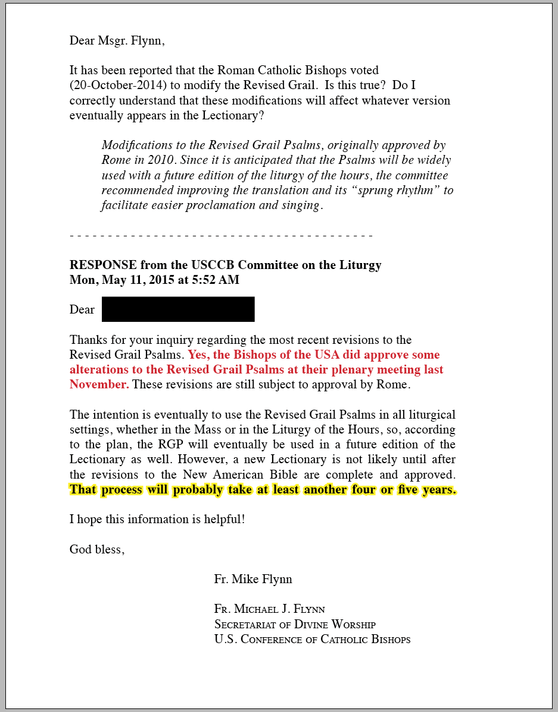 E WERE TOLD FOR YEARS that the Revised Grail by Conception Abbey (©2010) would eventually replace the Responsorial Psalms in the American Lectionary. Many were concerned about this arrangement, because the REVISED GRAIL PSALMS are essentially owned by a private company. Dr. Jerry Galipeau wrote in 2010:
E WERE TOLD FOR YEARS that the Revised Grail by Conception Abbey (©2010) would eventually replace the Responsorial Psalms in the American Lectionary. Many were concerned about this arrangement, because the REVISED GRAIL PSALMS are essentially owned by a private company. Dr. Jerry Galipeau wrote in 2010:
I cannot understand why a private family (the owners of GIA Publications) can be granted a position as “worldwide agent” for the official prayers of the Church.
This is bad news for composers, and very good news, of course, for GIA Publications.
The New Liturgical Movement had asked the same question in 2008. Before Bishop Edward Slattery approved the JOGUES PEW LECTIONARY, the question arose whether the Revised Grail should be used, since it was eventually supposed to replace the USA Lectionary text. Several other pew books chose the Revised Grail, but the Jogues committee decided to use the text in our current USA Lectionary.
It seems the Jogues committee made the correct choice:

That letter was sent to me by a reader. This seems to have occurred back in 2014. The response came from the USCCB Committee on the Liturgy and is dated 11 May 2015.

